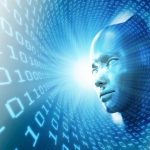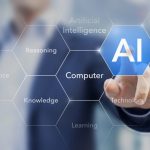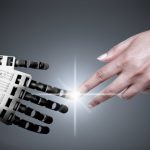6 emerging technologies in 2021

Technology is always changing. Whether it’s delivery apps taking off because of a global pandemic or video games incorporating virtual reality (VR), technology holds an immense amount of power.
As 2020 comes to a close, many are wondering what the next year holds. The following six emerging innovations are fields that will develop further throughout 2021.
How AI can help enterprises stay on top of data governance [Q&A]

Security breaches and privacy violations can cost businesses dearly. not only in financial penalties but also by causing damage to their reputation.
Keeping tabs on your data and how it's used is an essential part of staying in control and it's an area where AI can help. We spoke to Amar Kanagaraj, founder and CEO of AI-powered data protection and data governance specialist oneDPO to find out more.
5 ways AI is improving healthcare post-COVID

COVID-19 has highlighted the need for change in the healthcare industry. When the pandemic eventually subsides, medical systems will emerge with the knowledge of where they need to improve. AI in healthcare can and will address many of these issues.
Medical AI is nothing new, with 89 percent of healthcare executives reporting that AI is already helping them. Now that healthcare improvement is a more prominent issue, the adoption of this tech will only increase. The post-COVID medical world will rely on these technologies. Here are five ways healthcare organizations will use AI to improve after the pandemic.
Pandemic provides boost to AI and ML adoption

Companies are planning to increase their spending on AI/ML as a result of the pandemic, and many have realized that those initiatives should have been a higher priority for their organizations all along.
A new survey of enterprise IT leaders from Algorithmia, a provider of ML operations and management solutions, shows that 91 percent of respondents were spending at least $1,000,000 annually on AI/ML prior to the pandemic, and 50 percent say they are planning to spend more than that going forward.
Can AI replace white collar jobs?

Let’s start with the definition of "REPLACE," from Merriam-Webster: To restore to a former place or position (e.g. replace cards in a file); To take the place of especially as a substitute or successor; To put something new in the place of (e.g. replace a worn carpet).
Now, let’s check the definition of "ENHANCE": To increase or improve in value, quality, desirability, or attractiveness (e.g. enhanced the room with crown molding); To increase or improve (something); To make greater or better (e.g. the products claim to enhance beauty).
Productivity is key to profits but most companies can't measure it

AI-powered productivity company enaible has released a new survey looking at executive viewpoints on workforce productivity in light of the economic and remote working impact of COVID-19.
It finds that 83 percent of respondents are relying on productivity to improve both margins and profitability, and 83 percent believe that worker productivity will be critical in their companies' ability to recover from the economic impact of the coronavirus pandemic.
Samsung and IBM lead the AI patent race as European companies lag behind

New research into global patent registrations and information on the economic value of patents in the AI sector reveals that Samsung, IBM and Tencent dominate with the highest number of patents filed.
But the study from specialist in the law and economics of IP, OxFirst, also shows fierce competition between the US and China which overshadows other countries, including those in Europe.
9 ways AI can transform your employee experience

The future of work is happening now: despite skeptics prophesying growing unemployment rates, AI not only creates new job roles but also changes the employee experience for the better. Assisted with AI tools and analytics, workers no longer have to spend hours (and, consequently, years) on meaningless routines, since they can focus on job aspects that truly bring value.
So how will artificial intelligence transform employee experience and enhance employee engagement? Read on to learn how AI contributes to digital workplace transformation.
How COVID-19 sparked a revolution in healthcare machine learning and AI

In the past six months, COVID-19 has evolved from a speck on the world radar to a full-blown pandemic. While it has claimed the lives of many and shed a massive spotlight on some of the major issues in healthcare, it has also served as a catalyst for innovation.
As with nearly every element of the healthcare system, applications of machine learning and artificial intelligence (AI) have also been transformed by the pandemic. Although the power of machine learning and AI was being put to significant use prior to the Coronavirus outbreak, there is now increased pressure to understand the underlying patterns to help us prepare for any epidemic that might hit the world in the future.
AI alone isn't enough to thwart cyberattacks

Crowdsourced security platform Bugcrowd has released a new report which shows that 78 percent of hackers on its site say AI-powered cybersecurity solutions alone aren’t enough to outmaneuver cyber attacks over the next decade.
The 2020 Inside the Mind of a Hacker report also reveals that 87 percent say that scanners can’t find as many critical or unknown assets as humans.
How Artificial Intelligence is escalating in cybersecurity

When progressive technologies start to deliver on their potential, we can expect a wholesale shift of vendors looking to get on the bandwagon. First the technology enthusiasts and early adopters will come to validate the promises of the newest technology and hone its potential into something viable for the mainstream. Once that is done, the early majority, late adopters and finally, even the skeptics jump in as well.
Finally the time is here for Artificial Intelligence and Machine Learning (AIML) in cyber. There is a widespread move out of the early adopter stage and into the early majority stage of adoption. We need to get onboard if we are going to thwart cybercriminals. The good news is that the industry is recognizing the power and the value of AIML and is finally making investments in this space.
AI and what it means for humanity

We hear a lot about what artificial intelligence means for business and research, how it can speed up and streamline tedious processes and so on.
But if machine intelligence is going to be our new normal how does that affect what it means to be human? Emeritus professor of mathematics at Oxford University, John C. Lennox has written a new book exploring these questions. In this exclusive extract he looks at how our brains compare to computers.
IBM fairness toolkit aims to eliminate bias in data sets

IBM is announcing changes to its AI Fairness 360 toolkit to increase its functionality and make it available to a wide range of developers.
AIF360 is an open source toolkit that contains over 70 fairness metrics and 11 state-of-the-art bias mitigation algorithms developed by the research community to help examine, report, and mitigate discrimination and bias in machine learning models throughout the AI application lifecycle.
Can AI bring back productivity that other technology has squandered?

How do you know you had a good day at work? If you did, how would your boss know?
These questions are especially important in the current environment where so many people are working from home without the insight that watercooler discussions, office pop-ins and other face-to-face contact would typically provide. Our reliance on technology to get work done has been growing for decades, but work-from-home orders due to the coronavirus pandemic have accelerated that reliance even more.
Microsoft and Sony team up to create AI-powered smart camera solutions

Microsoft and Sony Semiconductor Solutions have announced details of a new partnership that will see the two companies working on AI-powered smart cameras and video analytics together.
The partnership means that Microsoft Azure AI capabilities will be embedded on Sony’s intelligent vision sensor IMX500. Additionally, Sony will create an enterprise-focused smart camera managed app that will be powered by Azure IoT and Cognitive Services.
Recent Headlines
BetaNews, your source for breaking tech news, reviews, and in-depth reporting since 1998.
© 1998-2025 BetaNews, Inc. All Rights Reserved. About Us - Privacy Policy - Cookie Policy - Sitemap.